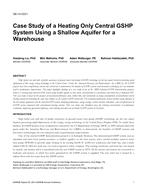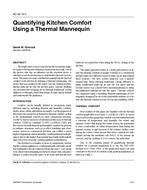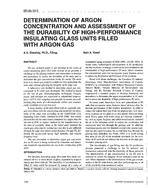Click here to purchase
An industrial ventilation system is designed to protect occupants from pollutants and odours associated with a particular process as well as meet minimum requirements for fresh clean air. However, given the frequency with which epidemics and pandemics have occurred recently, SARS, H1N1, MERS and SARS-CoV2, designing-in resiliency against the spread of infectious diseases should be considered in industrial ventilation design. Techniques like close capture and containment flushing of occupants may protect them from an industrial process, but do not necessarily protect workers from their colleagues who may have contracted an infectious disease. In this study the ability of a typical industrial facility to reduce the spread of an infectious disease will be examined. Methods of improving the resiliency of the design will also be evaluated. These methods will include increasing the outdoor air rate and added filtration. Two different types of industrial facilities are modelled using computational fluid dynamics (CFD). The ventilation system is modelled as designed (locations, flow rates, supply air throw distances) and with the additional mitigation methods. A pollutant source originating from the occupants is used to represent an infectious disease. If desired this pollutant can be scaled to represent the quanta of different diseases. From the results an increased understanding of what methods work to reduce spread of infectious disease can be used to build resiliency against the next epidemic.
Product Details
- Published:
- 2022
- Number of Pages:
- 9
- Units of Measure:
- Dual
- File Size:
- 1 file , 2.3 MB
- Product Code(s):
- D-IIVC2022-C013
- Note:
- This product is unavailable in Russia, Belarus


